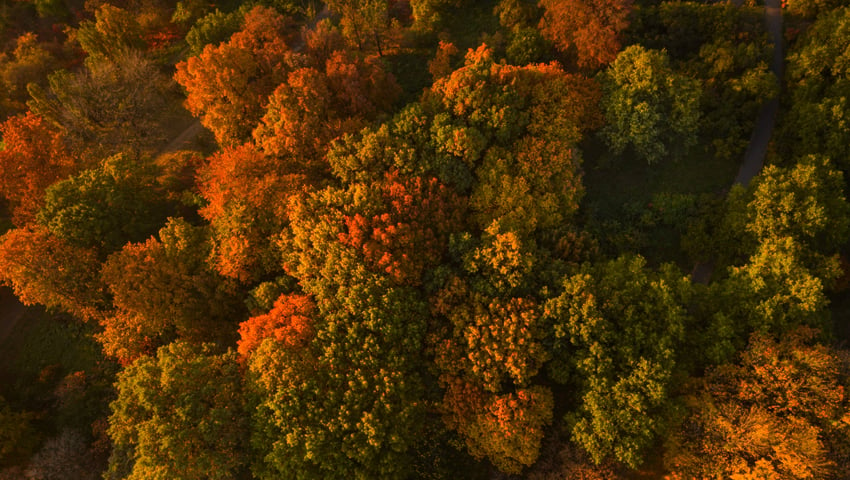Forests with a greater diversity of trees are more productive – potentially leading to greater efficiency in capturing planet-warming carbon dioxide from the atmosphere, a new study reveals.
Researchers found that trees which grow quickly, and capture carbon faster, tend to be smaller and have shorter lifespans, leading to lower carbon storage and faster release back into the atmosphere.
Slower growing species live longer and grow larger, tending to capture more atmospheric carbon – particularly in the setting of more diverse forests.
Analysing 3.2 million measurements from 1,127 species of trees across the Americas – from southern Brazil to northern Canada – an international team of experts mapped life expectancies for trees ranging from 1.3 to 3,195 years.
Publishing their findings in Science, an international group including researchers from South America, Central America, Europe and North America – led by ETH Zurich, Switzerland – further identify four main types of tree life-cycle: Fast-growing species with shorter lifespans and low maximum sizes, plus three clusters of slow-growing species.
At one end of the three conservative growth clusters are tree species with high life-expectancies and small maximum sizes, whilst at the other end are species with low life expectancies and large maximum sizes.
Co-author Dr Adriane Esquivel-Muelbert, Brazilian researcher based at the University of Birmingham, said, “Tree growth and lifespan trade-offs are crucial for the planet’s carbon balance. The positive relationship between trait diversity and productivity suggests that maintaining diverse forests is crucial for ecosystem health and climate change mitigation.
“Forests with diverse tree species can capture carbon more effectively, meaning that promoting forest biodiversity in forests can help capture more carbon. Understanding how these factors are linked can guide restoration and conservation projects.
“By selecting the right mix of tree species, we may be able to maximise carbon storage and develop strategies that enhance forest resilience to climate change.”
The researchers mapped life history traits of tree species across the Americas, finding a strong connection between temperature and tree growth with colder climates associated with slower growth. Tropical forests exhibit higher diversity compared to temperate and boreal forests.
Lead author Dr Lalasia Murphy, from ETH Zurich, said, “This study provides a broad-scale assessment of tree life expectancy for species across the Americas, with estimates ranging from tens to thousands of years. We also find that more diverse forests, which include a wider range of fast-growing, short-lived, and slow-growing, long-lived species, tend to sequester more carbon. These findings provide new insights that can be used to inform biodiversity conservation and climate change mitigation.”
The researchers found that tropical regions retain the full range of four demographic functional types, whilst tree species found in non-tropical areas fall into two clusters of predominantly slow-growing species. Mean life expectancy tends to be higher outside the tropics.
Experts used the largest dataset of dynamic tree information to date – calculating the mean life expectancy and maximal lifespan for a wide range of trees from Northern Canada to Southern Brazil.
“Such large-scale analysis is only possible with large collaborative efforts involving hundreds of researchers monitoring these forests for many years,” said Dr Thomas Pugh, co-author of the study from the University of Birmingham and Lund University.
Data also included long-term records from an international network of researchers, including members of the Global Forest Dynamics, ForestPlots, and ForestGeo networks, as well as the United States and Canadian forest inventory programmes.
